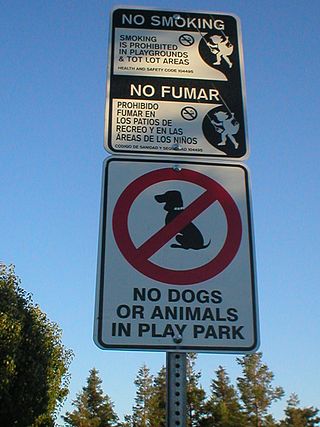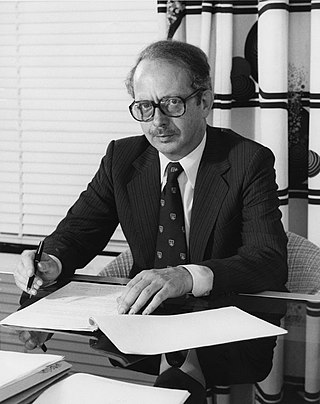In ordinary language, a crime is an unlawful act punishable by a state or other authority. The term crime does not, in modern criminal law, have any simple and universally accepted definition, though statutory definitions have been provided for certain purposes. The most popular view is that crime is a category created by law; in other words, something is a crime if declared as such by the relevant and applicable law. One proposed definition is that a crime or offence is an act harmful not only to some individual but also to a community, society, or the state. Such acts are forbidden and punishable by law.

Social control is a concept within the disciplines of the social sciences. Social control is described as a certain set of rules and standards in society that keep individuals bound to conventional standards as well as to the use of formalized mechanisms. The disciplinary model was the forerunner to the control model.
Social conflict theory is a Marxist-based social theory which argues that individuals and groups within society interact on the basis of conflict rather than consensus. Through various forms of conflict, groups will tend to attain differing amounts of material and non-material resources. More powerful groups will tend to use their power in order to retain power and exploit groups with less power.

Conflict theories are perspectives in sociology and social psychology that emphasize a materialist interpretation of history, dialectical method of analysis, a critical stance toward existing social arrangements, and political program of revolution or, at least, reform. Conflict theories draw attention to power differentials, such as class conflict, and generally contrast historically dominant ideologies. It is therefore a macro-level analysis of society.

In Marxist philosophy, cultural hegemony is the dominance of a culturally diverse society by the ruling class who manipulate the culture of that society—the beliefs and explanations, perceptions, values, and mores—so that the worldview of the ruling class becomes the accepted cultural norm. As the universal dominant ideology, the ruling-class worldview misrepresents the social, political, and economic status quo as natural, inevitable, and perpetual social conditions that benefit every social class, rather than as artificial social constructs that benefit only the ruling class.

Ralf Gustav Dahrendorf, Baron Dahrendorf, was a German-British sociologist, philosopher, political scientist and liberal politician. A class conflict theorist, Dahrendorf was a leading expert on explaining and analysing class divisions in modern society. Dahrendorf wrote multiple articles and books, his most notable being Class Conflict in Industrial Society (1959) and Essays in the Theory of Society (1968).

In criminology, a political crime or political offence is an offence involving overt acts or omissions, which prejudice the interests of the state, its government, or the political system. It is to be distinguished from state crime, in which it is the states that break both their own criminal laws or public international law.

Social conflict is the struggle for agency or power in society. Social conflict occurs when two or more people oppose each other in social interaction, and each exerts social power with reciprocity in an effort to achieve incompatible goals but prevent the other from attaining their own. It is a social relationship in which action is intentionally oriented to carry out the actor's own will despite the resistance of others.
In the United States, the relationship between race and crime has been a topic of public controversy and scholarly debate for more than a century. Crime rates vary significantly between racial groups; a 2005 study by the American Journal of Public Health observed that the odds of perpetrating violence were 85% higher for blacks compared with whites, with Latino-perpetrated violence 10% lower. However, academic research indicates that the over-representation of some racial minorities in the criminal justice system can in part be explained by socioeconomic factors, such as poverty, exposure to poor neighborhoods, poor access to public and early education, and exposure to harmful chemicals and pollution. Racial housing segregation has also been linked to racial disparities in crime rates, as blacks have historically and to the present been prevented from moving into prosperous low-crime areas through actions of the government and private actors. Various explanations within criminology have been proposed for racial disparities in crime rates, including conflict theory, strain theory, general strain theory, social disorganization theory, macrostructural opportunity theory, social control theory, and subcultural theory.

Critical criminology is a perspective in criminology that challenges traditional beliefs about crime and criminal justice, often by taking a conflict perspective such as Marxism, feminism, or critical theory. Critical criminology examines the genesis of crime and the nature of justice in relation to factors such as class and status, Law and the penal system are viewed as founded on social inequality and meant to perpetuate such inequality. Critical criminology also looks for possible biases in criminological research.

Marxist criminology is one of the schools of criminology. It parallels the work of the structural functionalism school which focuses on what produces stability and continuity in society but, unlike the functionalists, it adopts a predefined political philosophy. As in conflict criminology, it focuses on why things change, identifying the disruptive forces in industrialized societies, and describing how society is divided by power, wealth, prestige, and the perceptions of the world. "The shape and character of the legal system in complex societies can be understood as deriving from the conflicts inherent in the structure of these societies which are stratified economically and politically". It is concerned with the causal relationships between society and crime, i.e. to establish a critical understanding of how the immediate and structural social environment gives rise to crime and criminogenic conditions.

In criminology, the classical school usually refers to the 18th-century work during the Enlightenment by the utilitarian and social-contract philosophers Jeremy Bentham and Cesare Beccaria. Their interests lay in the system of criminal justice and penology and indirectly, through the proposition that "man is a calculating animal", in the causes of criminal behavior. The classical school of thought was premised on the idea that people have free will in making decisions, and that punishment can be a deterrent for crime, so long as the punishment is proportional, fits the crime, and is carried out promptly.

Integrative criminology reacts against single theory or methodology approaches, and adopts an interdisciplinary paradigm for the study of criminology and penology. Integration is not new. It informed the groundbreaking work of Merton (1938), Sutherland (1947), and Cohen (1955), but it has become a more positive school over the last twenty years.

The postmodernist school in criminology applies postmodernism to the study of crime and criminals. It is based on an understanding of "criminality" as a product of the use of power to limit the behaviour of those individuals excluded from power, but who try to overcome social inequality and behave in ways which the power structure prohibits. It focuses on the identity of the human subject, multiculturalism, feminism, and human relationships to deal with the concepts of "difference" and "otherness" without essentialism or reductionism, but its contributions are not always appreciated. Postmodernists shift attention from Marxist concerns of economic and social oppression to linguistic production, arguing that criminal law is a language to create dominance relationships. For example, the language of courts expresses and institutionalises the domination of the individual, whether accused or accuser, criminal or victim, by social institutions. According to postmodernist criminology, the discourse of criminal law is dominant, exclusive and rejecting, less diverse, and culturally not pluralistic, exaggerating narrowly defined rules for the exclusion of others.

Deviance or the sociology of deviance explores the actions and/or behaviors that violate social norms across formally enacted rules as well as informal violations of social norms. Although deviance may have a negative connotation, the violation of social norms is not always a negative action; positive deviation exists in some situations. Although a norm is violated, a behavior can still be classified as positive or acceptable.
Marxian class theory asserts that an individual's position within a class hierarchy is determined by their role in the production process, and argues that political and ideological consciousness is determined by class position. A class is those who share common economic interests, are conscious of those interests, and engage in collective action which advances those interests. Within Marxian class theory, the structure of the production process forms the basis of class construction.
Radical criminology states that society "functions" in terms of the general interests of the ruling class rather than "society as a whole" and that while the potential for conflict is always present, it is continually neutralised by the power of a ruling class. Radical criminology is related to critical and conflict criminology in its focus on class struggle and its basis in Marxism. Radical criminologists consider crime to be a tool used by the ruling class. Laws are put into place by the elite and are then used to serve their interests at the peril of the lower classes. These laws regulate opposition to the elite and keep them in power.

Criminology is the interdisciplinary study of crime and deviant behaviour. Criminology is a multidisciplinary field in both the behavioural and social sciences, which draws primarily upon the research of sociologists, political scientists, economists, legal sociologists, psychologists, philosophers, psychiatrists, social workers, biologists, social anthropologists, scholars of law and jurisprudence, as well as the processes that define administration of justice and the criminal justice system.
Risk and actuarial criminology, unlike many other theories of crime, does not focus on the causality of crime. It believes the social world is too complex and interlocking to understand what causes a behaviour or action. This theory seeks to understand the emerging forms of social control that may lead to crime, and concentrates on assessing risk. Major aspects of this theory are the norms and rules of a society that propel behaviour and private sectors getting involved in citizens lives. This theory does not revolve around issues of justice, the criminal code, or laws, it focuses on questions of how to minimize risk of entrenchments on private security for the general population. Power is a key concept within risk and actuarial criminology. Power is the highest most emergent form of social control, which contains many interlocking sets of networks such as schools, licensing agencies, organizations etc. This theory looks at the effect of these powers on risk and the risk to our personal private security. Risk criminology studies changes such as the rise in private security. Risk criminology sees this change as the social institutions taking more and more interest in the private sector, as well as the public domain, such as the government becoming less involved, leaving room for self-governance. This means that because of these changes in social control, individuals behaviour is understood and analyzed with actuary science because agencies and organizations are taking an interest in the personal security and risk of their clients. Another change that risk assesses is the blurring of the line between private and public policing. In recent times, private policing outnumbers public policing, which confuses and fragments policing, which explains some patterns of behaviour in our day.

Anarchist criminology is a school of thought in criminology that draws on influences and insights from anarchist theory and practice. Building on insights from anarchist theorists including Pierre-Joseph Proudhon and Peter Kropotkin, anarchist criminologists' approach to the causes of crime emphasises what they argue are the harmful effects of the state. Anarchist criminologists, a number of whom have produced work in the field since the 1970s, have critiqued the political underpinnings of criminology and emphasised the political significance of forms of crime not ordinarily considered to be political. Anarchists propose the abolition of the state; accordingly, anarchist criminologists tend to argue in favour of forms of non-state justice. The principles and arguments of anarchist criminology share certain features with those of Marxist criminology, critical criminology and other schools of thought within the discipline, while also differing in certain respects.






